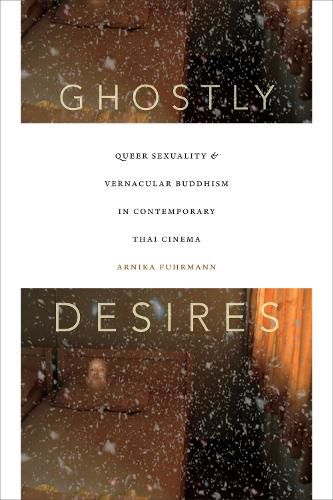Readings Newsletter
Become a Readings Member to make your shopping experience even easier.
Sign in or sign up for free!
You’re not far away from qualifying for FREE standard shipping within Australia
You’ve qualified for FREE standard shipping within Australia
The cart is loading…






Through an examination of post-1997 Thai cinema and video art Arnika Fuhrmann shows how vernacular Buddhist tenets, stories, and images combine with sexual politics in figuring current struggles over notions of personhood, sexuality, and collective life. The drama, horror, heritage, and experimental art films she analyzes draw on Buddhist-informed conceptions of impermanence and prominently feature the motif of the female ghost. In these films the characters’ eroticization in the spheres of loss and death represents an improvisation on the Buddhist disavowal of attachment and highlights under-recognized female and queer desire and persistence. Her feminist and queer readings reveal the entangled relationships between film, sexuality, Buddhist ideas, and the Thai state’s regulation of heteronormative sexuality. Fuhrmann thereby provides insights into the configuration of contemporary Thailand while opening up new possibilities for thinking about queer personhood and femininity.
$9.00 standard shipping within Australia
FREE standard shipping within Australia for orders over $100.00
Express & International shipping calculated at checkout
Through an examination of post-1997 Thai cinema and video art Arnika Fuhrmann shows how vernacular Buddhist tenets, stories, and images combine with sexual politics in figuring current struggles over notions of personhood, sexuality, and collective life. The drama, horror, heritage, and experimental art films she analyzes draw on Buddhist-informed conceptions of impermanence and prominently feature the motif of the female ghost. In these films the characters’ eroticization in the spheres of loss and death represents an improvisation on the Buddhist disavowal of attachment and highlights under-recognized female and queer desire and persistence. Her feminist and queer readings reveal the entangled relationships between film, sexuality, Buddhist ideas, and the Thai state’s regulation of heteronormative sexuality. Fuhrmann thereby provides insights into the configuration of contemporary Thailand while opening up new possibilities for thinking about queer personhood and femininity.